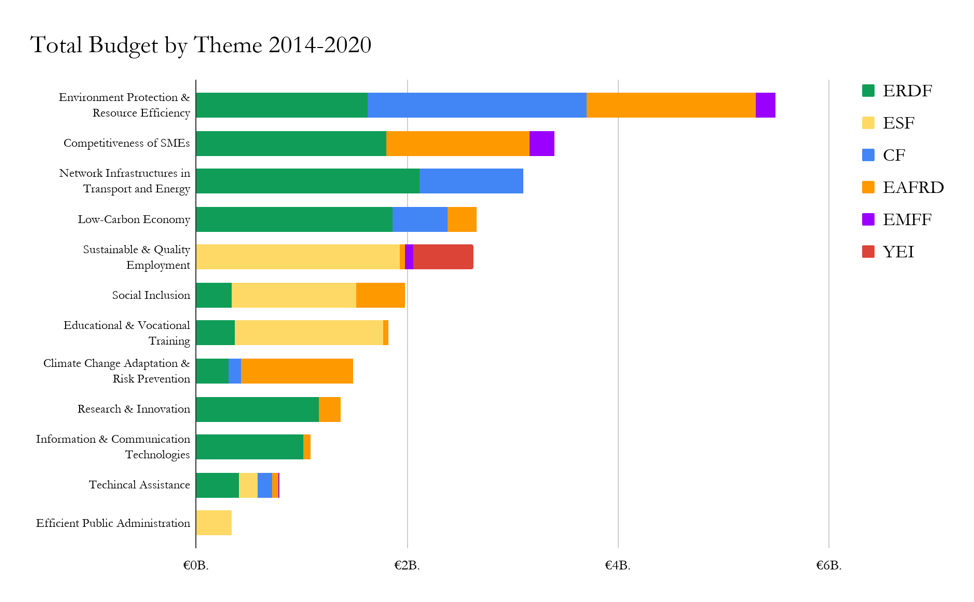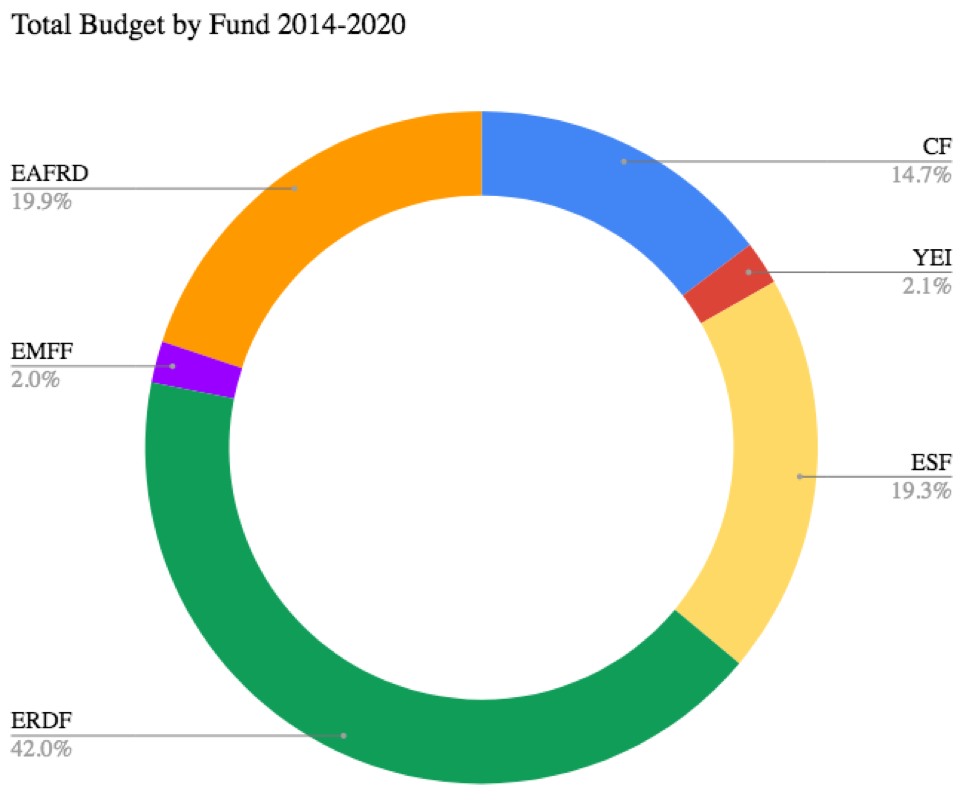News
Country Profile | Greece

For the 2014-2020 financial framework of European Structural and Investments Funds, the Greek Republic was allocated a total of €21.38 billion, which, added to a national contribution of €4.76 billion, see Greece reaching a total budget of €26.14 billion to be invested in various areas.
In fact, this budget is intended to be used through 20 national and regional programmes to:
Enhance competitiveness and outward-looking entrepreneurship;
Promote sustainable and quality employment, especially for those excluded like young and old people;
Address structural problems in the labour market and promote active inclusion;
Improve the transition to an environment-friendly economy, through the promotion of renewable energy and energy efficiency, effective waste management, recycling promotion and protection of water resources;
Promote social inclusion and fight against poverty;
Improve the education and training systems and the transition to the labour market;
Develop the national transport system and promote combined transport;
Enhance institutional capacity, the efficiency of public authorities and self-government;
Develop ICT infrastructures for enterprises and single-users.
The main investment area of the Greek government are the protection of the environment and the enhancement of resource efficiency, for which the European Regional Development Fund (ERDF), the European Agricultural Fund for Rural Development (EAFRD), the Cohesion Fund (CF) and the European Maritime and Fisheries Fund (EMFF) have assigned respectively €1.6 billion, €1.7 billion, €2 billion and €180 million. This measures are of fundamental relevance for the country, as some of its more remote areas are struggling to use in efficient ways the little resources they have. Special attention is paid by the Greek government to improve the competitiveness of small and medium enterprises (SMEs) and to boost the entrepreneurial environment of the national economy.

The chart above shows how the ERDF, EAFRD and EMFF are helping Greece reach these goals, thanks to an overall allocated budget of over €3.3 billion, of which the biggest share is held by the ERDF (€1.8 billion alone). Relevant in the political agenda of Greece is the development of network infrastructures in the energy and transport sectors: about 250 km of new or upgraded railway lines and 724 km of new or upgraded roads will be built during the 2014-2020 timeframe.
Chart 2 helps us fully understand the EU funding budget of the Greek government, thanks to an overview of the total available budget divided into the shares that each European Fund has in the total budget of €26.14 billion.

With more than 40%, the European Regional Development Fund (ERDF) allows Greece to spend almost €11 billion, distributed in almost all of the investments themes on the Greek agenda; the European Agricultural Fund for Rural Development (EAFRD) and the European Social Fund (ESF) distribute to the country €5.1 and €5 billion respectively, corresponding to 19.9% and 19.3% of the total budget: these two budgets are being used by Greece mainly to tackle environmental and social issues. Other significant funding comes from the Cohesion Fund (CF) with around €4 billion (14.7%), while the Youth Employment Initiative (YEI) and the European Maritime and Fisheries Fund (EMFF) reach just 2.1% and 2%.
In the matter of absorption rate, Greece is very effective when it comes to assigned funding to selected projects: in fact, Greece is 7% above the EU average of 65%, with a 72% of allocated funding, meaning almost €20 billion. However, with a 25% share of spent funding from the ESIF, Greece has one of the lowest percentages in the European Union, being 3% below the European average of 28%. This data stagnated during the last year, when Greece was among the top EU member states regarding absorption rates of spent funding, but the country failed to pursue on the right track of expenditures. New efforts should be made regarding the Cohesion Fund and the European Regional Development Fund, as most of the available funding of these two Funds is waiting to be spent for environmental protection and network infrastructure building measures.






